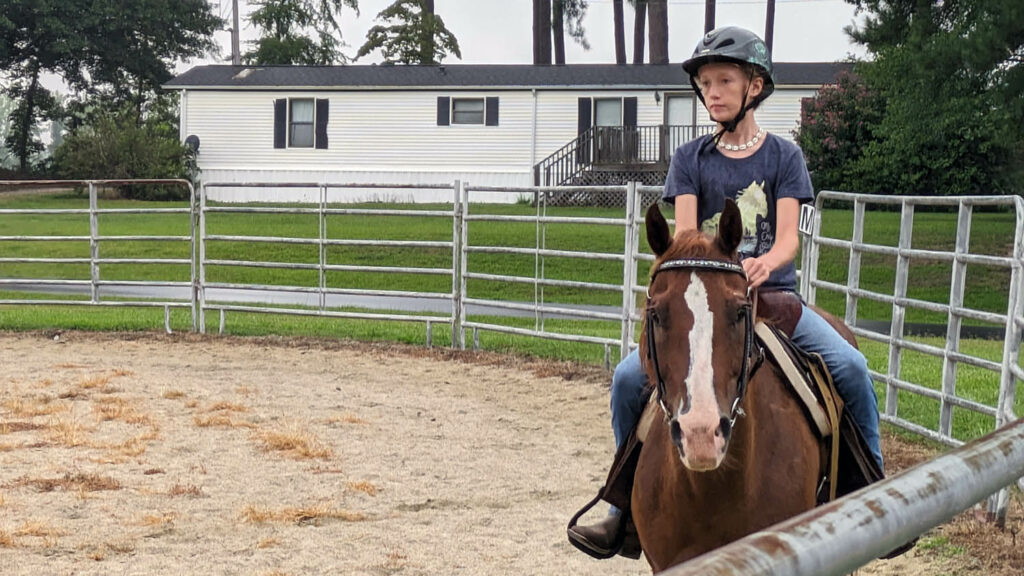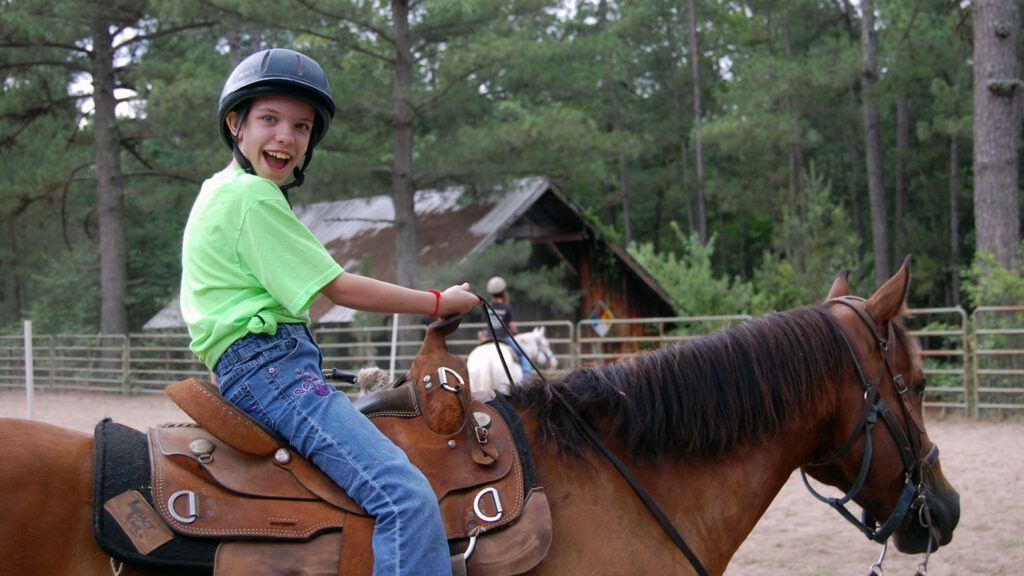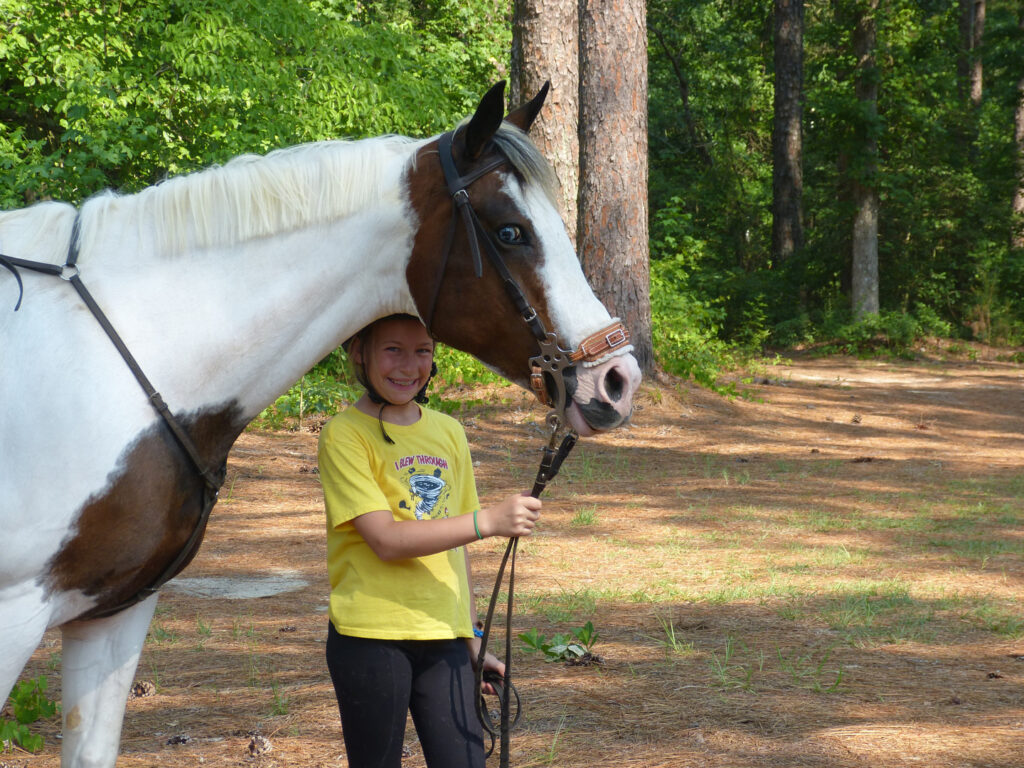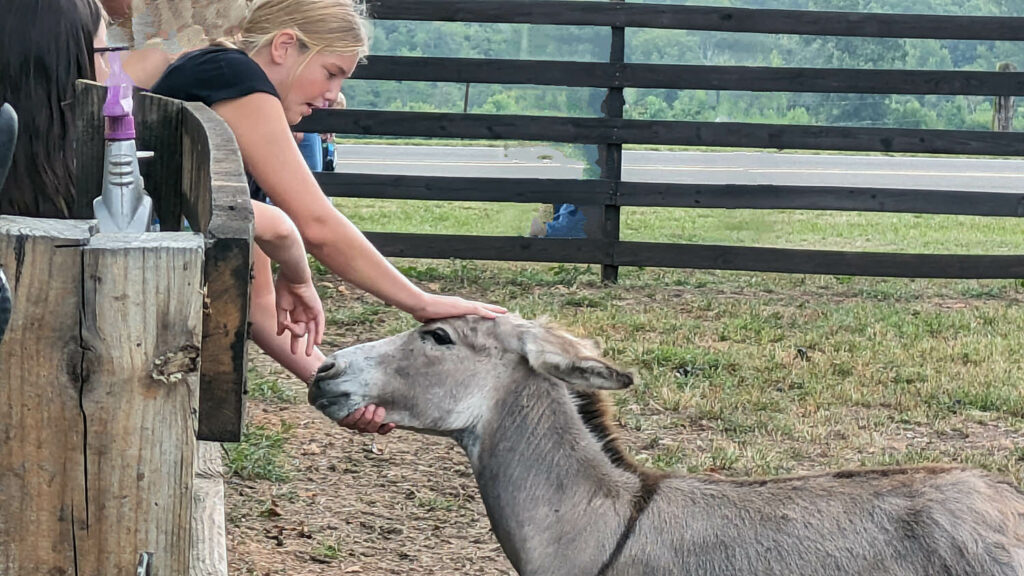NC State Extension 4-H Helps Instill a Lifelong Love of Horses
go.ncsu.edu/readext?980377
en Español / em Português
El inglés es el idioma de control de esta página. En la medida en que haya algún conflicto entre la traducción al inglés y la traducción, el inglés prevalece.
Al hacer clic en el enlace de traducción se activa un servicio de traducción gratuito para convertir la página al español. Al igual que con cualquier traducción por Internet, la conversión no es sensible al contexto y puede que no traduzca el texto en su significado original. NC State Extension no garantiza la exactitud del texto traducido. Por favor, tenga en cuenta que algunas aplicaciones y/o servicios pueden no funcionar como se espera cuando se traducen.
Português
Inglês é o idioma de controle desta página. Na medida que haja algum conflito entre o texto original em Inglês e a tradução, o Inglês prevalece.
Ao clicar no link de tradução, um serviço gratuito de tradução será ativado para converter a página para o Português. Como em qualquer tradução pela internet, a conversão não é sensivel ao contexto e pode não ocorrer a tradução para o significado orginal. O serviço de Extensão da Carolina do Norte (NC State Extension) não garante a exatidão do texto traduzido. Por favor, observe que algumas funções ou serviços podem não funcionar como esperado após a tradução.
English
English is the controlling language of this page. To the extent there is any conflict between the English text and the translation, English controls.
Clicking on the translation link activates a free translation service to convert the page to Spanish. As with any Internet translation, the conversion is not context-sensitive and may not translate the text to its original meaning. NC State Extension does not guarantee the accuracy of the translated text. Please note that some applications and/or services may not function as expected when translated.
Collapse ▲It was all over when Alaina Cross received a My Little Pony toy when she was 2. From that moment on, she was a horse girl.
“Horses were not in my family at all, but once I had My Little Ponies, it was all downhill from there for my parents,” she said.
Cross joined an NC State Extension 4-H horse program in Franklin County to learn more about the magnificent, fascinating animals.
“I grew up in 4-H,” she said. “I was in the North Carolina 4-H Horse Program before I had horses. I did lessons and I learned to ride. And then I got involved in the 4-H educational contest and that shaped my views of what I could do and the opportunities that were available in the world.”
Cross is still involved with horses and with 4-H. She is an associate with NC State Extension’s equine husbandry program and, along with Lori Stroud, one of the NC State 4-H Horse Program statewide coordinators.
Stroud also grew up as a horse lover in 4-H, participating in programs in Gaston County after her family moved there from Ohio when she was 11.
“I’ve been involved in the North Carolina 4-H program since 1987,” said Stroud, who will celebrate her 10th anniversary as an Extension assistant with NC State this year. “I was a student worker in the 4-H horse program office when I was a student at State. When I graduated, I was a volunteer leader and had a 4-H club and coached teams, so I’ve never really stopped.”
Many North Carolinians’ first contact with a horse comes through 4-H. The NC State 4-H Horse Program teaches youth all about horses — how to ride them, care for them, judge them, distinguish between breeds, and educate others about them.

Many young people in North Carolina begin a lifelong love of horses through a 4-H program.
“We have almost 20 different activities that kids can be involved with,” Cross said. “We have specific project goals and objectives for the horse program, which center around respecting and learning about the horse and proper welfare and management. We also focus on the 4-H objectives in general — building confidence, building leadership, and being part of a community. If they want to do it — and this is for any 4-H program — they’ve got to have a work ethic. They have to be willing to stretch themselves, like with public speaking or with community service or volunteer work. We push these kids out of their comfort zone to achieve something that they work really hard for.”
Get connected: Interested in getting connected to a local 4-H horse club? Learn more about what to expect, and find a club near you.
The strength and quality of the program was seen in early November. North Carolina 4-H’ers won all four team contests at the Eastern National 4-H Horse Roundup in Louisville, Kentucky, becoming the first state to finish first in Horse Bowl (knowledge of horses), Communications, Horse Judging and Hippology (a combination of the other three) in the same year.
The trophies and ribbons were tangible evidence of objectives the horse program has in common with all 4-H activities.
“The motto of 4-H is to make the best better,” Cross said. “We definitely see that with a lot of our kids who participate in these events. They’re there to make themselves better or they’re there because someone else knows they can make themselves better, whether that’s a parent or a volunteer or a club leader.”

The 4-H Horsemanship Camp at Camp Millstone helps improve riding skills for campers aged 8-18.
The program is for youth across the state who love horses, or who want to learn more about them, even if they don’t own one.
“The majority of our participants do not own a horse,” Cross said. “Some kids ride at a barn or a farm that teaches horseback riding lessons. That farm might also have a 4-H club and bring some of those horses to shows or camps. We have some groups that come out of families and some groups that just had access to a horse and someone willing to teach them. It varies widely.”
Related: NC State Extension professionals enable horse play
Cross and Stroud both became involved when their families did not own a horse. They are also emblematic of the makeup of the 4-H horse program in another way. While there are boys in the program — including a couple who won awards at the national competition in Louisville — the demographic skews heavily toward girls.
“I would say 98% female, 2% male,” Cross said. “And I would say it’s representative of the horse industry as a whole. At the national and world and Olympic level it’s a little bit more equal footing, but at the local level it’s a more female-heavy sport. I think there’s just gotta be something in our DNA.”

NC State Extension agents and volunteers introduce 4-H youth to the joys of horses.
Cross has a theory. Horse-centric books and movies like Black Beauty and National Velvet feature strong female characters. Animated series and toys like My Little Pony and anything to do with unicorns traditionally are aimed at girls.
“From a young age, it’s definitely romanticized with little girls, about having a pony and riding a horse,” she said. “That’s where it comes from.”
Whether male or female, access to horses takes place at the county level. Often, volunteers working under the leadership of an Extension 4-H agent organize clubs and host events at sites that supplies horses and give lessons.
“We have a huge legacy of volunteers in this state,” Cross said. “We have a tremendous percentage of adult volunteer leaders who were 4-H horse program members when they were a youth.”
Beyond county programs, opportunities for enhancing and displaying riding skills come at a horsemanship camp at Camp Millstone in the summer, four regional horse shows, and the state 4-H horse show in July in Raleigh.

The NC State Extension 4-H Horse Program attracts youth who love all types of equines.
Many programs focus not on riding a horse, but on evaluating it. Youth learn how to judge different horse breeds and riding styles, including western, hunt seat, saddle seat, and non-trotting.
“Sometimes we’re judging the horses according to their breed standards, and sometimes we’re judging the rider’s position on the horse,” Cross said. “They have to be able to judge those classes and then give what are called oral reasons. That is a learned and memorized set of facts. They have to speak to an adult official and basically convince them why they placed the classes the way they did.”
Cross and Stroud are proud to be a part of a program that promotes the 4-H goals of leadership development, character building and citizenship responsibilities while instilling a lifelong love of horses.
“We can’t do this without the support that we get from our volunteers,” Cross said. “And we’re really, really grateful to have a college that supports this. We have colleagues at other universities who are not as supported in their animal science programs and they do not receive the funds or the academic level support to be able to travel and prepare these kids. A huge part of our success is the fact that we have that support.”

